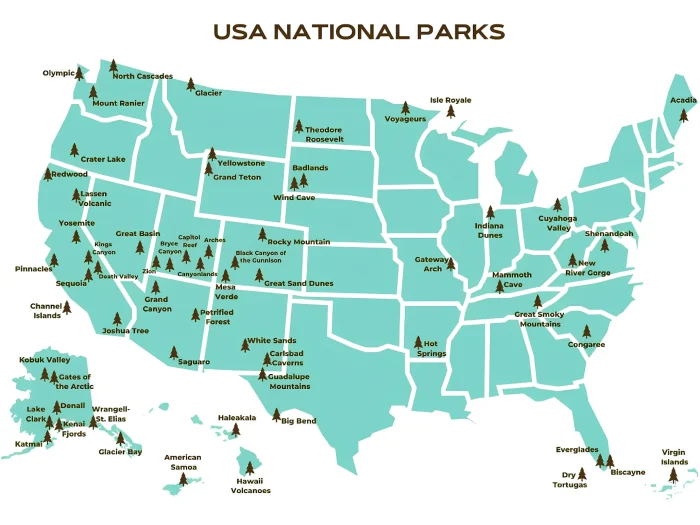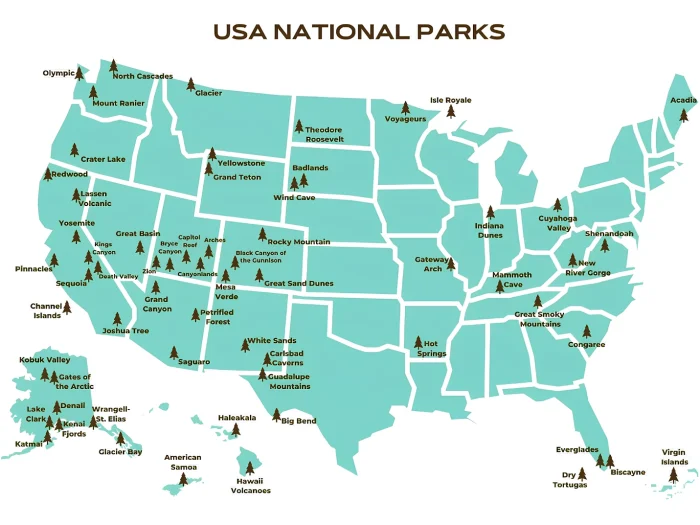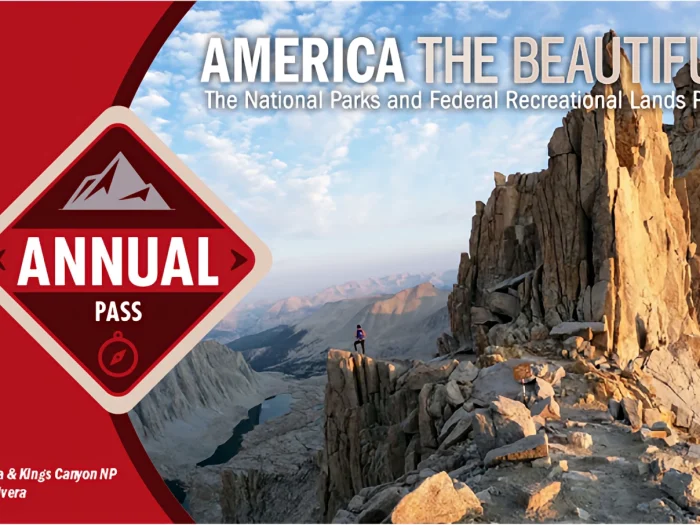What National Park Students Who Aspire to Become Conservationists Should Choose
For students aspiring to become conservationists, the choice of where to focus their practical learning and hands-on experience is crucial. National parks, with their vast landscapes, diverse ecosystems, and complex conservation challenges, serve as the ultimate classroom for these future guardians of the planet. Each park, with its unique biodiversity and environmental concerns, offers aspiring conservationists a chance to delve deep into the real-world applications of their studies. Understanding the role these protected areas play in conservation education and awareness is the first step toward choosing the right national park for their educational journey.
Selecting the ideal national park for a conservation project or internship can often feel as daunting as asking someone to “do my project for me” in the midst of a challenging academic semester. However, the decision is pivotal, as it influences not only the practical skills and knowledge gained but also shapes the student’s future career path in conservation. This selection process requires careful consideration of the student’s interests, the conservation focus of each park, and the opportunities available for hands-on learning. By examining the role of national parks in conservation education and highlighting specific parks known for their contributions to conservation science and practice, students can make informed decisions about where to direct their energies and ambitions.
https://unsplash.com/photos/brown-tree-branch-on-water-1CiE1x4dHIY
The Role of National Parks in Conservation Education
National parks are not just areas set aside for recreation and preservation; they play a pivotal role in conservation education. They are living laboratories where students can observe ecosystems in their natural state, understand the challenges of biodiversity conservation, and learn about the strategies employed to manage these challenges. These parks offer a direct view of the impacts of human activity on natural landscapes and provide a real-world context for theoretical knowledge gained in classrooms. By engaging with park rangers, participating in conservation projects, and observing wildlife management practices, students gain a deeper appreciation for the complexity of conservation work.
Top National Parks for Aspiring Conservationists
Yellowstone National Park
Yellowstone, as the first national park in the world, represents a cornerstone of conservation history and practice. It offers students the opportunity to study large mammal ecology, geothermal biology, and the management of natural resources. The park’s efforts in wolf reintroduction and its impact on the ecosystem serve as a case study in trophic cascades and the importance of predators in biodiversity. Students interested in wildlife management and the challenges of balancing conservation with human interests will find Yellowstone an invaluable educational resource.
Great Barrier Reef Marine Park
For those drawn to marine conservation, the Great Barrier Reef Marine Park provides a stunning backdrop for studying coral reef ecosystems, marine biodiversity, and the effects of climate change and pollution on marine life. The park offers various research and internship opportunities focusing on coral bleaching, conservation of endangered species like the dugong and green sea turtle, and sustainable tourism practices. It’s a unique environment where aspiring conservationists can engage in critical marine research and conservation efforts.
Amazon National Park
The Amazon Rainforest, often referred to as the “lungs of the Earth,” offers an unparalleled experience for students interested in tropical biodiversity, forest conservation, and the study of endemic and endangered species. The park is a hotspot for research on deforestation, habitat fragmentation, and conservation strategies to protect this vital ecosystem. Students can participate in projects focusing on sustainable resource use, wildlife monitoring, and the impact of climate change on tropical forests.
Serengeti National Park
Serengeti is iconic for its vast savannah landscapes, the annual wildebeest migration, and as a site for studies on ecosystem dynamics, conservation biology, and the coexistence of humans and wildlife. It provides a unique opportunity for students to learn about the challenges of protecting migratory routes, the role of fire in ecosystem management, and efforts to mitigate human-wildlife conflicts. Research and volunteer opportunities in the Serengeti allow students to contribute to ongoing conservation projects and gain experience in wildlife monitoring and management.
Gaining Hands-on Experience
Engaging in internships, volunteer work, and research projects within these national parks is crucial for aspiring conservationists. Such hands-on experience complements academic learning, providing practical skills and a deeper understanding of conservation challenges and solutions. Students should proactively seek out these opportunities by researching programs, contacting park management, and applying well in advance. These experiences not only enhance a student’s resume but also offer invaluable insights into the daily work of conservation professionals, preparing them for future careers in environmental protection and conservation.
Ethical Considerations in Research
Ethical considerations are paramount in conservation work, particularly when conducting research in national parks. Students must learn to navigate the ethical landscape of conservation, which includes respecting wildlife, minimizing disturbance to natural habitats, and adhering to park regulations and research guidelines. Understanding the importance of ethical research practices helps ensure that conservation efforts are sustainable and beneficial to both the environment and local communities. Education on ethical considerations also prepares students for the complexities of conservation work, where decisions often involve balancing ecological health with human needs.
The Role of Technology in Conservation
Technology has become an indispensable tool in conservation, offering innovative ways to monitor ecosystems, track wildlife, and analyze environmental data. Students aspiring to become conservationists should familiarize themselves with the latest technological tools and methodologies used in the field, such as GIS mapping, drone surveillance, and bioacoustic monitoring. Learning to apply these technologies in national parks can enhance research capabilities, improve conservation strategies, and offer a competitive edge in the job market.
Networking and Professional Development
Building a professional network is crucial for aspiring conservationists. National parks provide a platform for students to connect with seasoned professionals, researchers, and fellow conservation enthusiasts. Engaging in conferences, workshops, and volunteer programs within these parks can open doors to mentorship opportunities, internships, and future employment. Networking also allows students to share ideas, collaborate on projects, and stay informed about the latest trends and challenges in conservation.
Leveraging Academic Partnerships
Many national parks have established partnerships with universities and research institutions, offering students a pathway to engage in cutting-edge conservation research. These partnerships often provide resources for field studies, research funding, and access to specialized knowledge. Aspiring conservationists should explore these academic partnerships, as they can significantly enhance the educational experience, providing a bridge between academic learning and practical conservation work.
Conclusion
For students passionate about conservation, choosing the right national park for hands-on learning and research is a decision that can shape their future career. Through practical experience in parks like Yellowstone, the Great Barrier Reef, Amazon, and Serengeti, students gain invaluable insights into the challenges and rewards of conservation work. These experiences, combined with an understanding of ethical considerations, the role of technology, and the importance of networking and academic partnerships, prepare aspiring conservationists for the complexities of protecting our planet’s natural heritage. As they embark on this journey, students may seek support in various forms, including academic writing services for their research projects.





